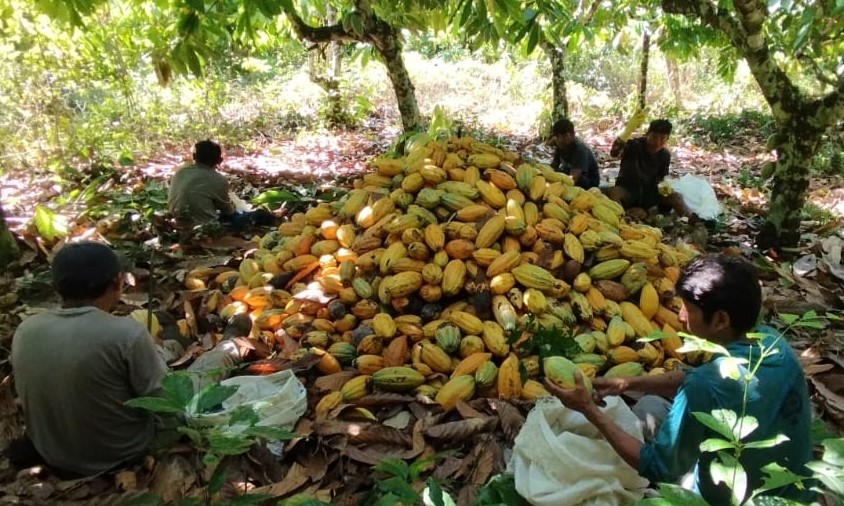To eliminate all deforestation resulting from their operations by 2025. That was the joint promise made at COP27 (the UN Conference on Climate Change) by 14 world agribusiness giants, including Brazilian companies JBS and Marfrig (animal protein) and Amaggi (soy), in addition to other world export commodity leaders such as Cargill, Bunge, Cofco and LDC (Louis Dreyfus Company).
Despite the commitment – formalized in a document that sets targets to end deforestation and reduce emissions – an investigation conducted by Repórter Brasil shows how several multinationals that signed the pledge repeatedly fail to monitor their suppliers and continue to buy from deforesters.
In practice, this allows soy producers that illegally deforested, had areas interdicted by environmental agencies or are involved in land conflicts that threaten traditional communities to be part of the supply chain of soy – an essential raw material to produce animal feed. The investigation – detailed in Monitor #18 ‘The trail of destruction caused by soy in Brazil’s Cerrado’ – reveals that the situation is especially serious in the Cerrado biome, Brazil’s biggest frontier for soy expansion.
The document signed at COP27 by the agribusiness giants – called ‘Agricultural Sector Roadmap to 1.5ºC – Reducing emissions from land use change’ – sets targets to halt deforestation promoted by companies, either directly or through their suppliers. One focus is precisely on soy planted in Brazil’s Amazon and Cerrado biomes and the Chaco region located in Argentina, Paraguay, Bolivia and Brazil.
The plan was heavily criticized by environmental organizations, which claim that the companies’ promise does not immediately tackle deforestation – the main obstacle that would cause global warming to stay within the lowest target of 1.5 °C. “Rapidly eliminating all deforestation in supply chains is technically and economically feasible, and the largest meat packers and traders have the knowledge, capacity and tools needed to do so. Do they have the will?” asks a joint manifesto signed by organizations such as the Observatório do Clima, Comissão Pró Índio do Acre, Instituto Centro de Vida (ICV), Rede Cerrados and WWF-Brazil.
Read more:Monitor #18: The trail of destruction caused by soy in Brazil’s Cerrado
Devastating soy
It is crucial to analyse soy’s potential for environmental destruction, especially in the Cerrado, because while livestock is still the main driver of deforestation, experts point out that soy plantations are directly and indirectly responsible for that devastation. “The standard behaviour is to start by deforesting and placing cattle on the land. Then comes infrastructure, after which the value of the land increases, and they start planting export commodities, especially soy. It’s a cheaper way to occupy the Cerrado,” summarizes Professor Elaine Barbosa da Silva from the Institute of Socio-Environmental Studies (IESA) at the Federal University of Goiás (UFG) and head of the Image Processing and Geoprocessing Laboratory (Lapig).
Repórter Brasil’s investigation shows that the Cerrado is one of the biomes that has been suffering the most from soy-driven deforestation. From 2001 to 2016, almost half of the new soy areas in South America (44%) were in the Cerrado. According to a report sponsored by Abiove (the Brazilian Association of Vegetable Oil Industries), 4.19 million hectares of soy plantations in the Cerrado are located in areas deforested in the last 20 years – which is more than 14% of the total deforested in the biome.
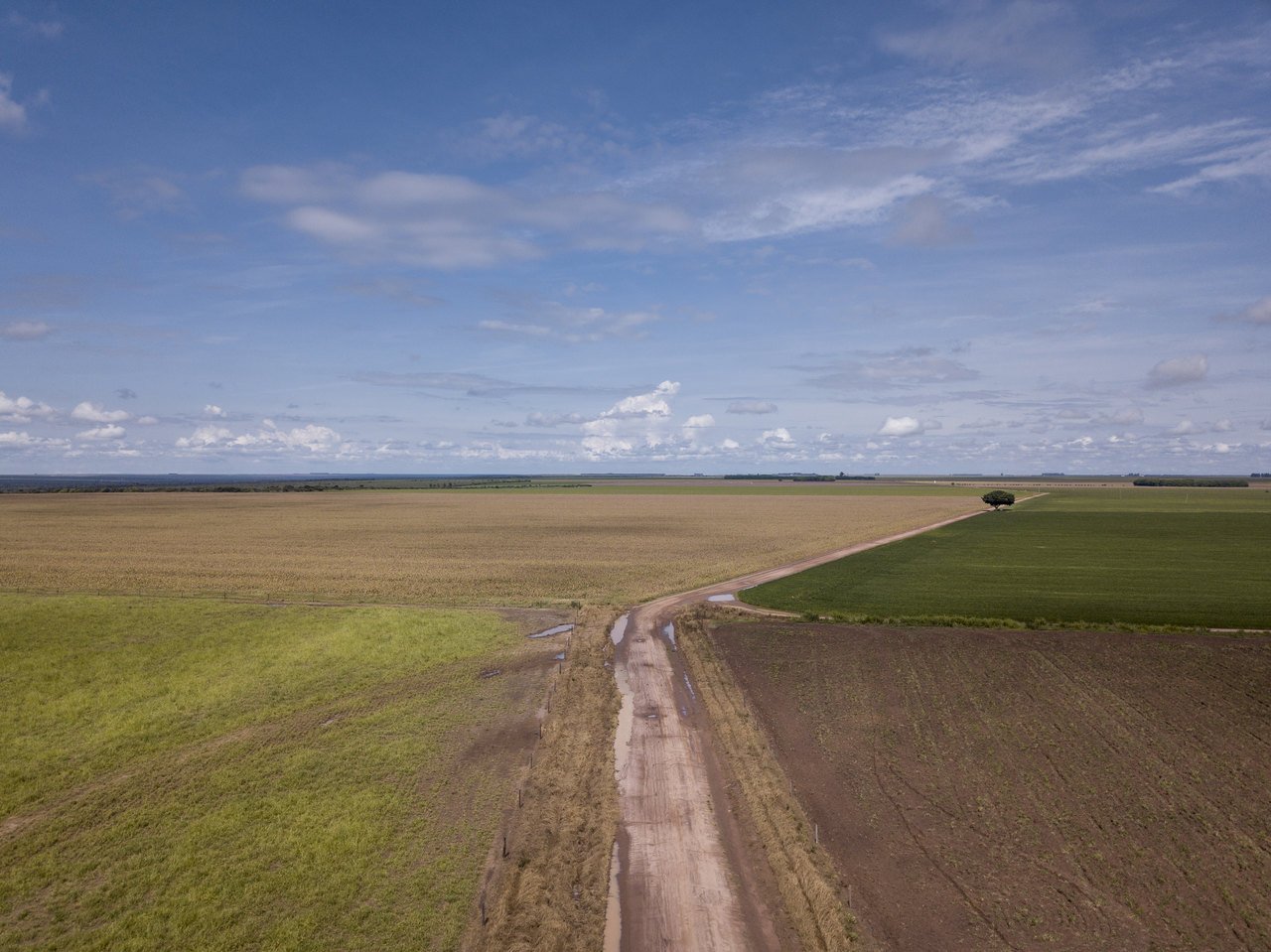
The document signed by the multinationals also proposes a global assessment – with support from local governments, producers and companies – of the environmental, social and economic impacts of converting natural ecosystems to soy production, to be completed by the end of 2023. Only upon completion of the risk analysis, implementation plans and targets will be developed, “as needed.”
Researchers estimate that, with the current pace of deforestation of native vegetation to create crops, the Cerrado could collapse within 30 years. The environmental degradation resulting from the expansion of agribusiness in agricultural frontiers such as the so-called Matopiba area – a new agricultural frontier that includes areas in the sates of Maranhão, Piauí, Bahia and the entire territory of Tocantins – may lead to severe droughts, threatening the stability of the biome and agricultural production itself. In this scenario, the fires that take over the landscape of the biome between June and October would become more intense and prolonged.
From deforestation in Brazil to the European market
The history of the occupation of the Matopiba region shows that the expansion of soy to the global commodity trade did not happen without deforestation of native vegetation, private use of water resources, and conflicts with traditional communities. It is estimated that around 20% of exports of soy produced in the Cerrado and the Amazon to the European Union (EU) may be tainted by illegal deforestation.
In this investigation, Repórter Brasil shows how multinationals sourced soy from farms that had illegally deforested Cerrado areas. One of the cases investigated is that of Agropecuária Jan, which operates in livestock and grain farming on areas located in the state of Tocantins. In February 2019, Brazilian environmental agency Ibama fined the company R$ 560.000 for illegally removing 376 hectares of native vegetation from the Jan, Bardhal e Panela de Ferro property – a 19,700-hectare farm located in Pium, in midwestern Tocantins. Part of the deforestation took place in the so-called legal reserve area. The environmental agency also interdicted all agricultural activities in the sanctioned area.
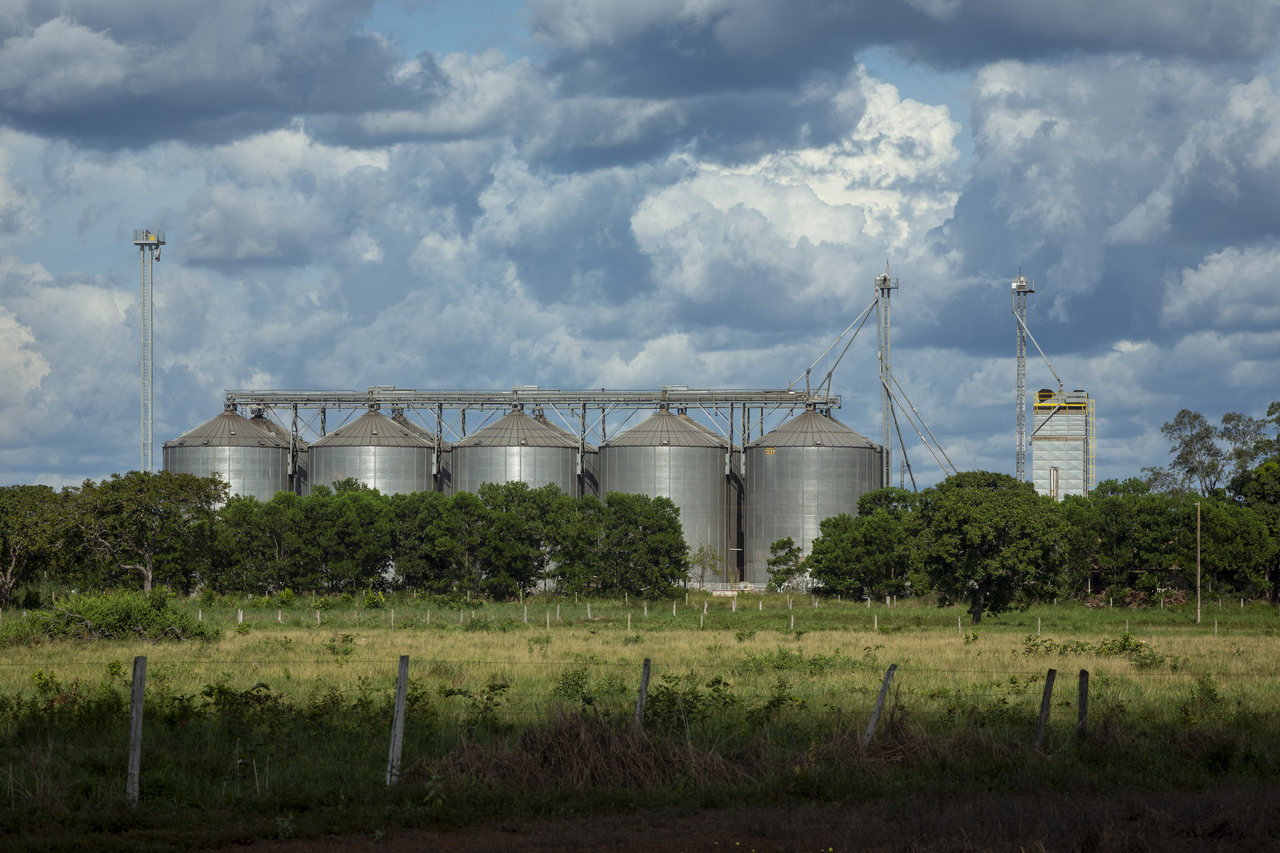
However, satellite images show that, in that same year, soy was planted in parts of the interdicted areas, with cultivation being interrupted in the two following harvest seasons. Since 2008, Brazilian legislation considers that purchasing agricultural products from areas subject to environmental interdiction is a violation subject to fines.
Two months after the area was inspected and interdicted, in April 2019, Agropecuária Jan sent soybeans to Bunge’s warehouses in Campos Lindos (Tocantins), in a transaction intermediated by Nutrade Comercial Exportadora Ltda. The information is recorded in tax records issued by Agropecuária Jan and accessed by Repórter Brasil.
Nutrade is a trading company belonging to Swiss conglomerate Syngenta, one of the main suppliers of pesticides and seeds for Brazil’s agribusiness industry. Through Nutrade, Syngenta operates in so-called ‘barter’ operations, in which commodities such as soy are used as payment for inputs previously provided to farmers. The soybeans acquired by Nutrade are sold to various customers, such as Bunge – which was fined R$ 1.8 million in 2018 under Operation Shoyo Matopiba, carried out in partnership with the Federal Prosecution Service (MPF), for acquiring 3,700 sacks of soybeans from areas interdicted in the region.
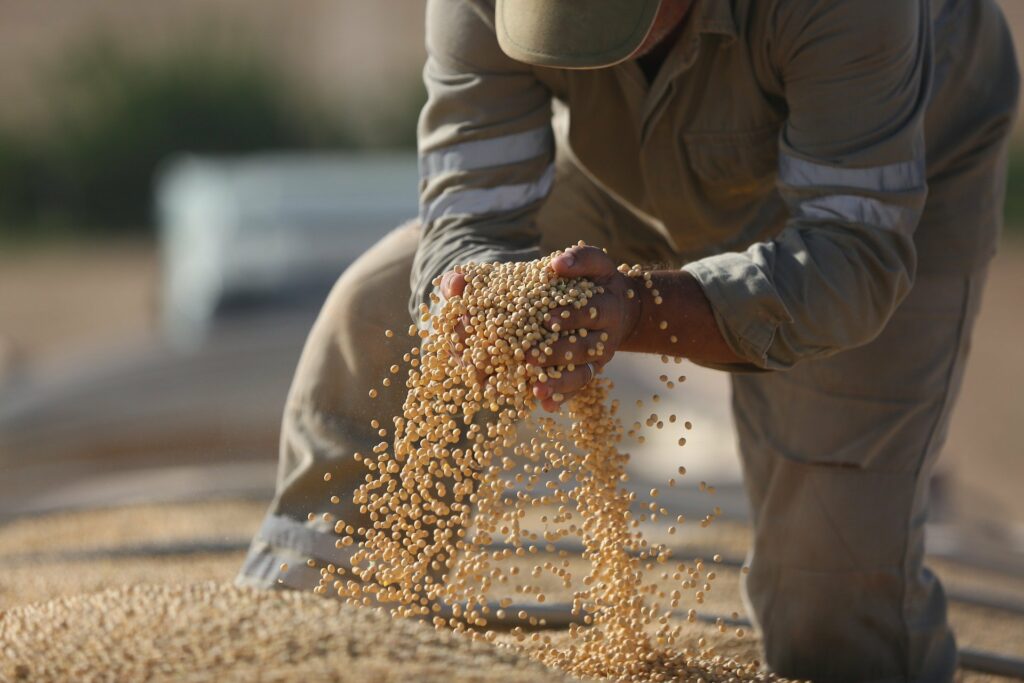
At first, Nutrade denied having done business with Agropecuária Jan in 2019 but changed its angle and reported that, after conducting additional inquiries, it would confirm the purchase. Without detailing how it monitors its supply chain, the trading company stated that “the [land] registrations originating from said transaction” were not the same areas interdicted by Ibama in February 2019. It “reaffirmed [its] commitment to investigating and verifying the status of [its] suppliers and business partners.”
In a note, Bunge stated that it will not comment on business relations with specific producers. Repórter Brasil also contacted Agropecuária Jan by phone and email but did not receive a response until this investigation was finished.
Failures and frauds
Since Bunge’s arrival in Brazil in early 20th century, agribusiness multinationals have played a central role in soy production in the country. The companies are aware of the potential impacts of their supply chains, and the document they released at COP27 also set the target of establishing traceability over their entire supply chains by 2023 in order to define places with high risk of deforestation, in addition to creating monitoring policies and protocols to discourage deforestation in the Amazon, Cerrado and Chaco.
The multinationals already have mechanisms to trace and monitor deforestation in those biomes. One example is the Soy Moratorium, an agreement that provides for boycotting soy from areas deforested in the Amazon biome after July 22, 2008. However, the system still has its flaws.
In October, a report produced by Repórter Brasil showed that several farms in Mato Grosso – Brazil’s main soy producing state – that had deforested the Amazon and the Cerrado to plant soy and corn sold their products to Amaggi and Bunge, which later passed them on to JBS to make feed for the fowl that the company slaughters and sells under one of its brands, Seara. The document shows how agribusiness enterprises circumvent environmental mechanisms and legislation to produce grains and do business with companies that are signatories of the Soy Moratorium. JBS then stated that, at the time of purchase, the farms met the socio-environmental requirements adopted by the company. (Read full answer)
Furthermore, the agreement has other blind spots such as allowing business with farms that, in addition to planting soy, also engage in other agricultural activities. According to the Moratorium’s current criteria for the Amazon, signatory companies may continue sourcing soy from these farms, even if they have repeatedly deforested, as long as the deforested areas are not used for planting soy.
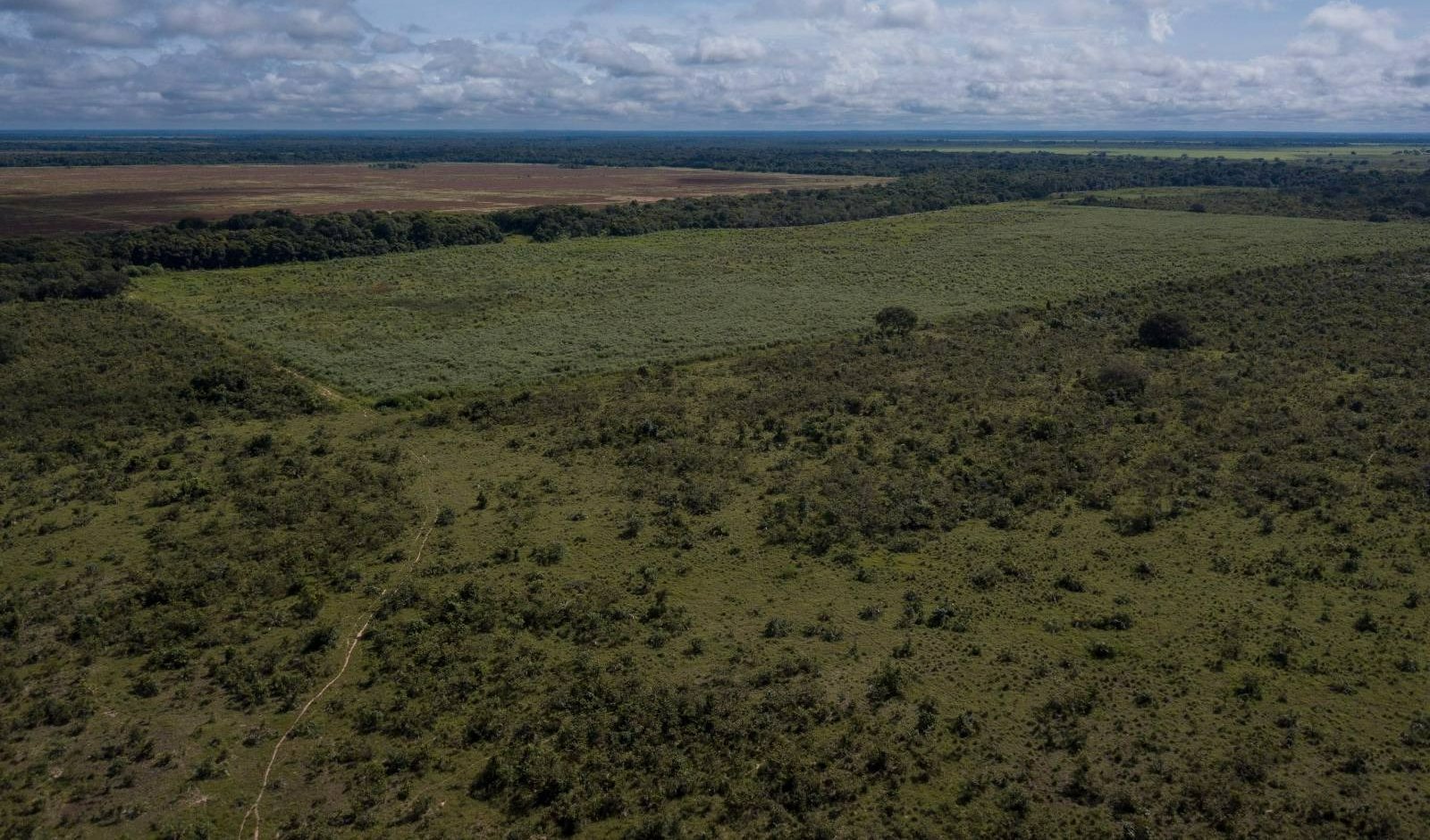
The scenario is even worse in the Cerrado. In recent years, several initiatives aimed at zero deforestation in that biome have been created but did not gain as much strength or adherence. In addition, they do not make it clear how agribusinesses can guarantee the traceability of the soy purchased by intermediary suppliers.
Document fraud is yet another concern. Farmers can easily mask the real origin of the raw material and, while they are aware of this problem, multinationals committed to ending deforestation do not present solutions to prevent this from happening.
Failures to comply with the soy moratorium may be contributing to the significant increase in planting verified in the last harvests, which does not meet the initiative’s criteria. And the same problems may affect future agreements in the Cerrado.
